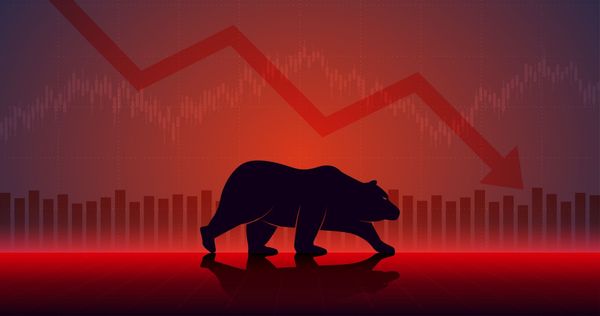Las Vegas Sands ( stock broke down Tuesday with a severe bearish candle on the candlestick chart. Therefore, traders who think LVS stock will either remain stagnant or not rise significantly might consider a bear call spread trade.
Shares slumped more than 6% on Tuesday and crossed below the 50-day and 10-week moving averages in beefy volume.
Let's look at how a bear call spread might set up in LVS stock.
LVS Stock Today: Why A Bear Call Spread Now?
As a reminder, a bear call spread involves selling an out-of-the-money call and buying a further out-of-the-money call.
Options Trading Turns 50! Here's How Options Can Help Your Nest Egg
The strategy can generate profits if the stock trades lower, sideways, and even if it trades slightly higher — as long as LVS stock stays below the short call at expiry.
A June 16-expiring bear call spread could be set up using the 58 strike as the short call and the 63 strike as the long call.
In Wednesday afternoon trading, that spread was trading for around $1.07. If executed at that price, the maximum profit on the trade would be $107 per contract with a maximum risk of $393. The spread will achieve the maximum 27% profit if LVS stock closes below 58 on June 16, in which case the entire spread would expire worthless, allowing the trader to keep the $107 option premium.
Risk Vs. Reward
The maximum loss will occur if LVS stock closes above 63 on June 16, which would see the premium seller lose $393 on the trade. While some option trades have the risk of unlimited losses, a bear call spread is a risk-defined strategy. Thus, you always know the worst-case scenario in advance.
A stop loss could be set if Las Vegas Sands trades above 58, or if the spread value rises from $1.00 to $2.00.
According to IBD Stock Checkup, LVS stock ranks No. 2 in its group. It has a Composite Rating of 94, an EPS Rating of 64 and a Relative Strength Rating of 94. However, a 3-month RS Rating of 21 clearly denotes short-term weakness.
Please remember that options are risky, and investors can lose 100% of their investment. Also, this article is for education purposes only and not a trade recommendation. Remember to always do your own due diligence and consult your financial advisor before making any investment decisions.
Gavin McMaster has a Masters in Applied Finance and Investment. He specializes in income trading using options, is very conservative in his style and believes patience in waiting for the best setups is the key to successful trading. Follow him on Twitter at @OptiontradinIQ










